Selected Plants of Navajo Rangelands
Brome, mountain
Tł’ohtsohndtł’izí
(a.k.a. California brome)
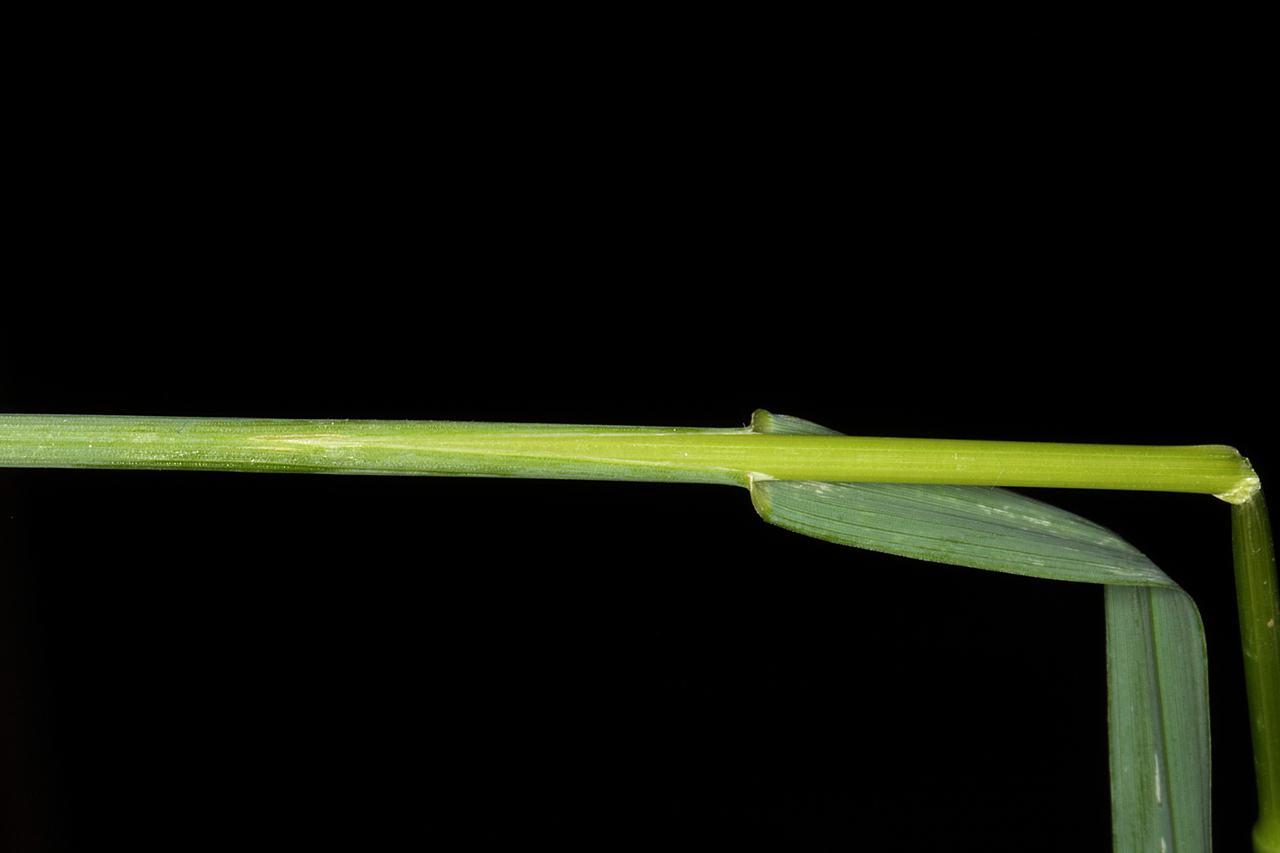
Mountain brome is a native, annual or perennial bunchgrass that lives three to five years and grows to be two to four feet tall. The roots of mountain brome are fibrous, grow very quickly, and become deep and widespread. Young plants are erect, but older stems are decumbent: they grow along the ground with only the apical tips remaining erect. Stems are robust with hairy sheaths. Leaf blades are 1/16 to 1/2 inch wide and 6 to 12 inches long. They can be pubescent or glabrous. The inflorescence is a stiff, open panicle, 4 to 8 inches long, and it droops at maturity. The spikelets are flattened, measuring 3/4 to 1 1/2 inches long and 1/5 to 1/4 inch wide. They have five to seven flowers. Lemmas are over 3/8 inch long, flattened, keeled and usually pubescent. The awns are 2/16 to 5/16 inches long. Seeds mature in May and June at low elevations and by late August at high elevations.
Mountain brome is common in the mountains and foothills of the Intermountain West. It is often found in relatively moist habitats in mountain big sagebrush, mountain shrub, aspen, and spruce–fir communities and up to sub alpine mountain meadows. It can be found at elevations ranging from 5,000 to 10,500 feet.
Mountain brome is an excellent plant for the revegetation of livestock and big game ranges in foothill and mountain locations. It is highly palatable in the spring, providing good forage for wildlife and livestock. The leaves provide excellent grazing for elk, cattle, and horses and are also eaten by sheep and deer. The seeds are readily eaten by small mammals and birds.
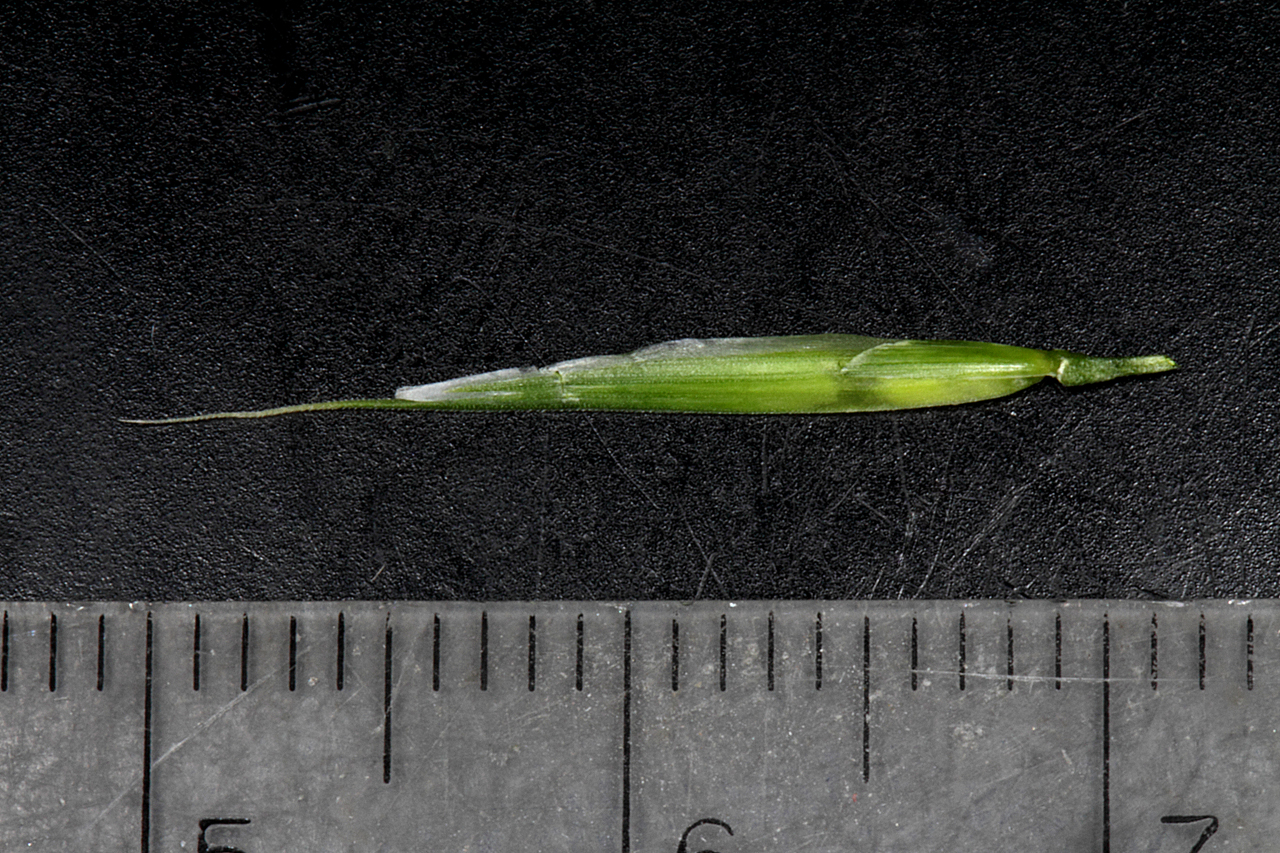
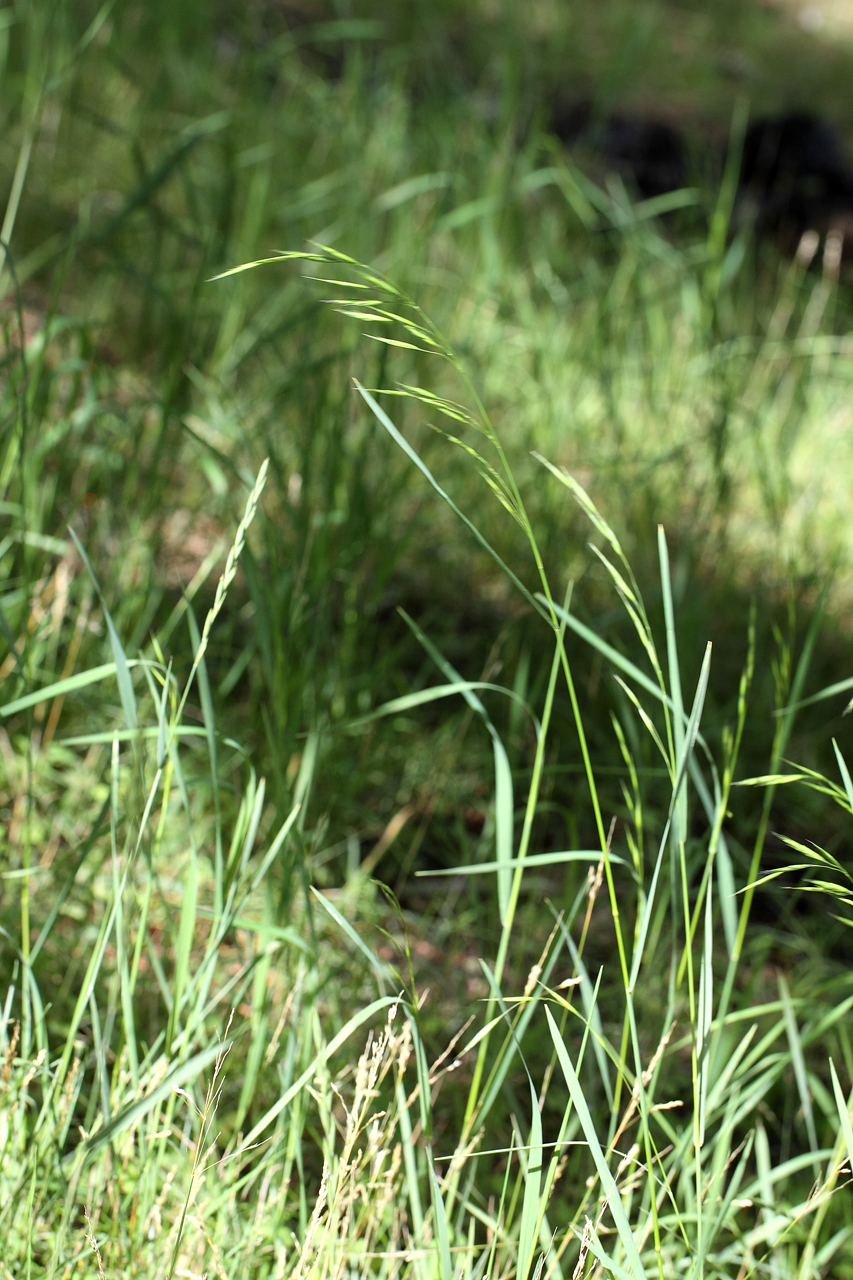
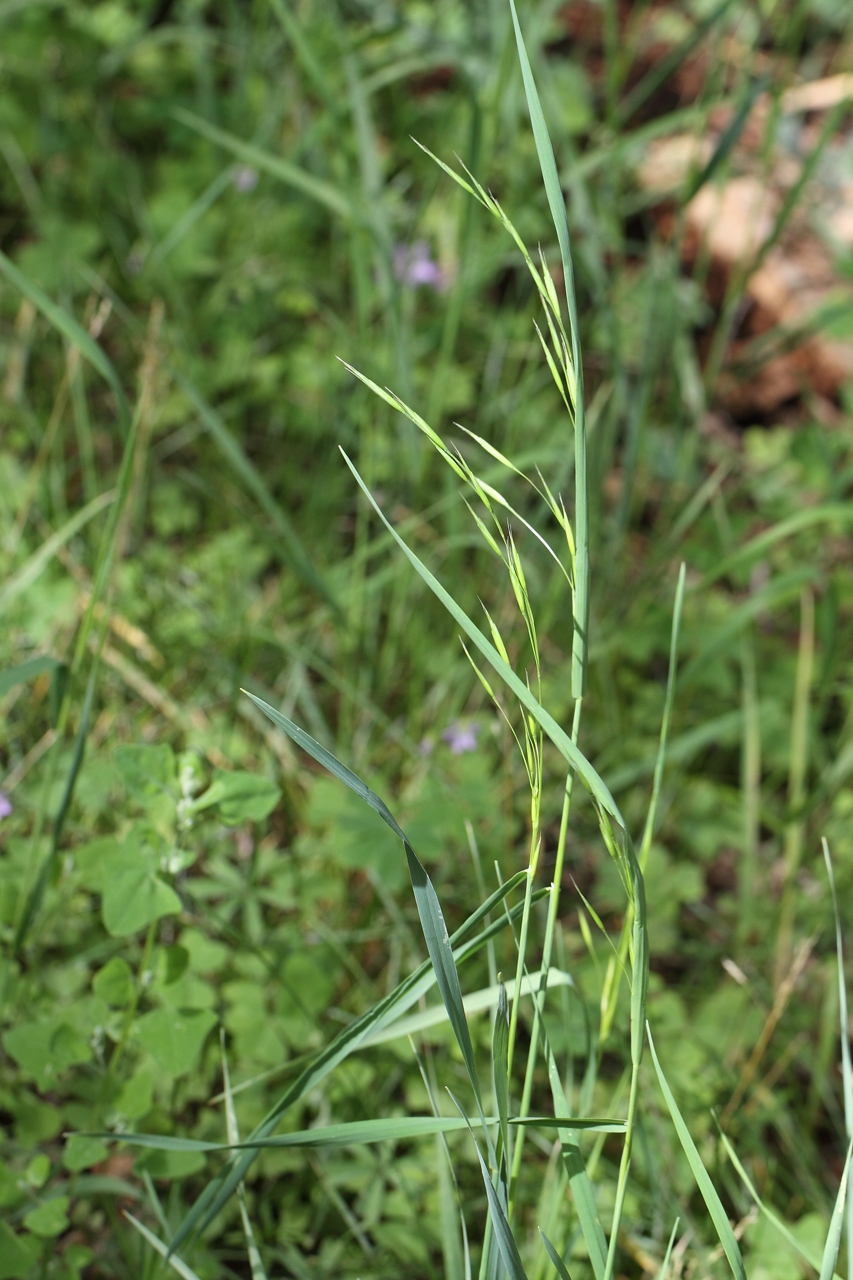
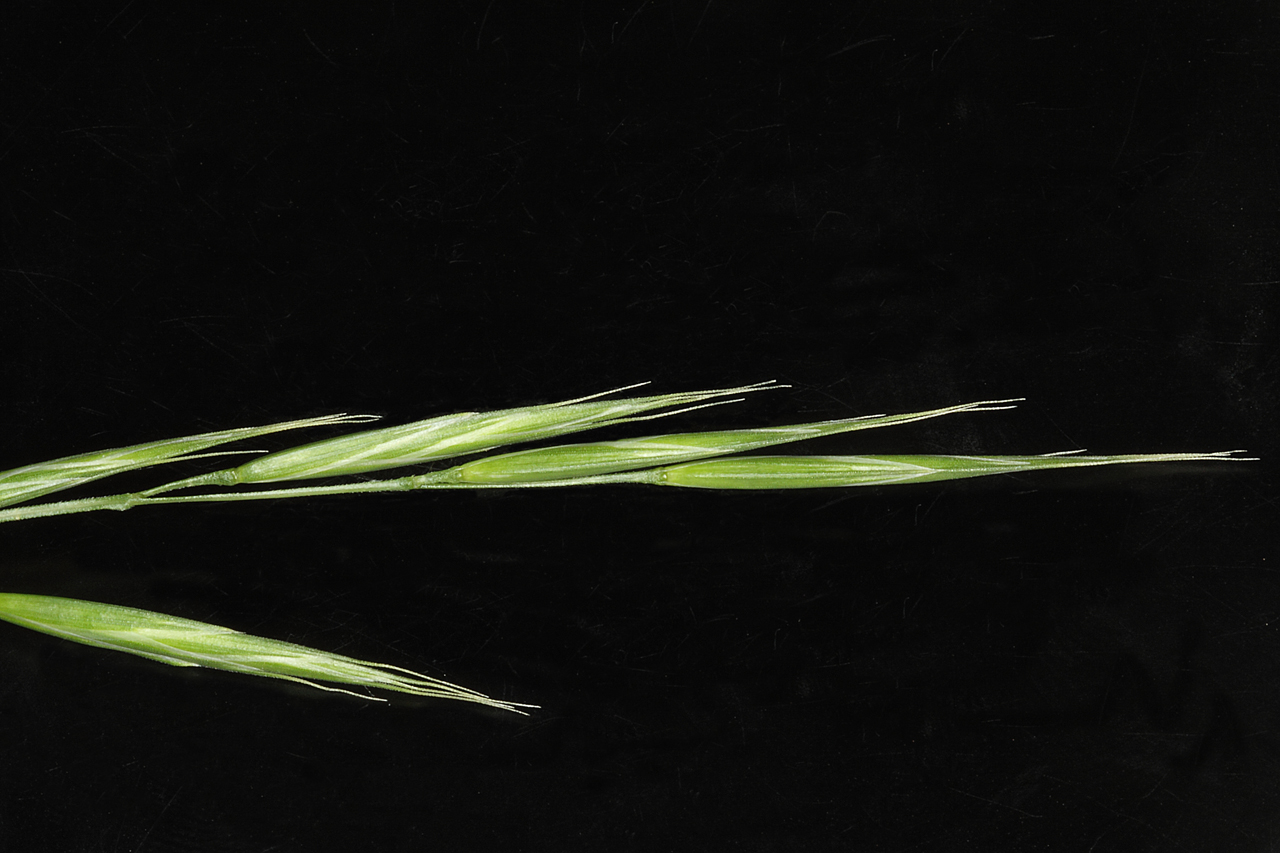
Copyright 2018 New Mexico State University. Individual photographers retain all rights to their images. Partially funded by the Western Sustainable Agriculture Research and Education Program (westernsare.org; 435.797.2257), project EW15-023. Programs and projects supported by Western SARE are equally open to all people. NMSU is an equal opportunity/affirmative action educator and employer.
NMSU does not discriminate on the basis of age, ancestry, color, disability, gender identity, genetic information, national origin, race, religion, retaliation, serious medical condition, sex (including pregnancy), sexual orientation, spousal affiliation or protected veteran status in its programs and activities as required by equal opportunity/affirmative action regulations and laws and university policy and rules. For more information please read the NMSU Notice of Non-discrimination.

